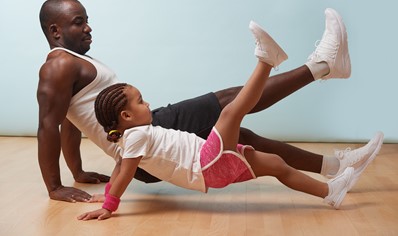
Summer is the perfect time to be mindful—to slow down, close your eyes, and enjoy the “here and now.”
According to the American Psychological Association, mindfulness means being aware of your internal state and your immediate surroundings. When children and adults make mindfulness part of their everyday routine, they learn to observe their own thoughts and feelings without judging them.
Mindfulness is free of charge and you can practice wherever you are. Best of all, the exercises can lead to lower stress and better health.
What are the benefits of mindfulness?
When people of any age practice mindfulness, they can boost their mental and physical health in many ways.
Mindfulness can help individuals to:
- Cope with stress more effectively
- Get through tough days with more resilience
- Develop better focus at school and work
- Switch tasks more easily
- Build social skills
Physical health benefits of mindfulness may include:
- Reduced anxiety
- Better-managed depression
- Improved sleep
- Lower blood pressure
- Higher tolerance for pain
Ready to try out mindfulness for yourself and your family?
One simple way to get started is to make a commitment to turn off the TV, computer, and other devices for a few hours each day. For tips on how to reduce screen time in your home, check out this blog post.
Then, choose one mindfulness exercise below. Practice it once or twice for several days and then try another.
A few minutes a day can make a big difference over time. Be patient with mindfulness—and with yourself!
Pursed-lip breathing
Breathing in through your nose and out through your mouth is very calming.
- Inhale slowly through your nose, as you silently count to five
- Hold the breath, as you silently count to five
- Purse your lips, as if you are blowing out a candle
- Blow out your breath, as you silently count to five
Mindful eating
Make the most out of every bite with this fun mealtime exercise.
- Turn off the TV, music, phones, and any other distractions.
- Put away all reading material.
- Sit down at the table with your food in front of you.
- Take a bite.
- Notice: Is the food hot, warm, cold, or room temperature?
- Does it taste sweet, bitter, salty, sour, savory—or a mix of flavors?
- Is the food crunchy, chewy, or creamy?
- Continue to eat more of your meal.
- Notice your hunger level change.
- As you finish your food, notice your mood and thoughts.
Mindful walking
Ready to lower your stress levels? Try being fully “in the moment” while you take a walk outside.
- Turn off your phone.
- Walk at a natural pace.
- How do your feet feel when they touch the ground, grass, or sand?
- Is the air warm or cool on your face, arms, and hands? Can you feel a breeze?
- Pay attention to the sounds above, behind, and on all sides of you.
- What colors do you notice? Do you see your favorite color?
- Bring your attention to your body. Do you feel energetic or sleepy? Do your legs feel strong or weak?
- Notice your neck, shoulders, and back. Is your posture straight as you move?
- Notice your thoughts. Do not judge them as “good or bad.” Just let them come and go.
Do you know how stressed you are? Take a free stress inventory assessment here. This will help you know how much your stress can impact you. If your score is over 150, you should contact your PCP or Carelon Behavioral Health to seek help.
Need help for depression, anxiety, or other concerns?
Carelon Behavioral Health is here to help you with behavioral health treatment for:
- depression
- anxiety
- marriage and family problems
- alcohol and drug abuse
You do not need approval for individual, family, or group therapy. Also, you do not need a referral from your regular doctor.
English/Spanish interpreter services available 24 hours a day, 7 days a week.
HEALTHfirst STAR Medicaid: 1-800-945-4644
KIDSfirst CHIP: 1-800-945-4644
KIDSfirst CHIP Perinate: 1-888-814-2352



